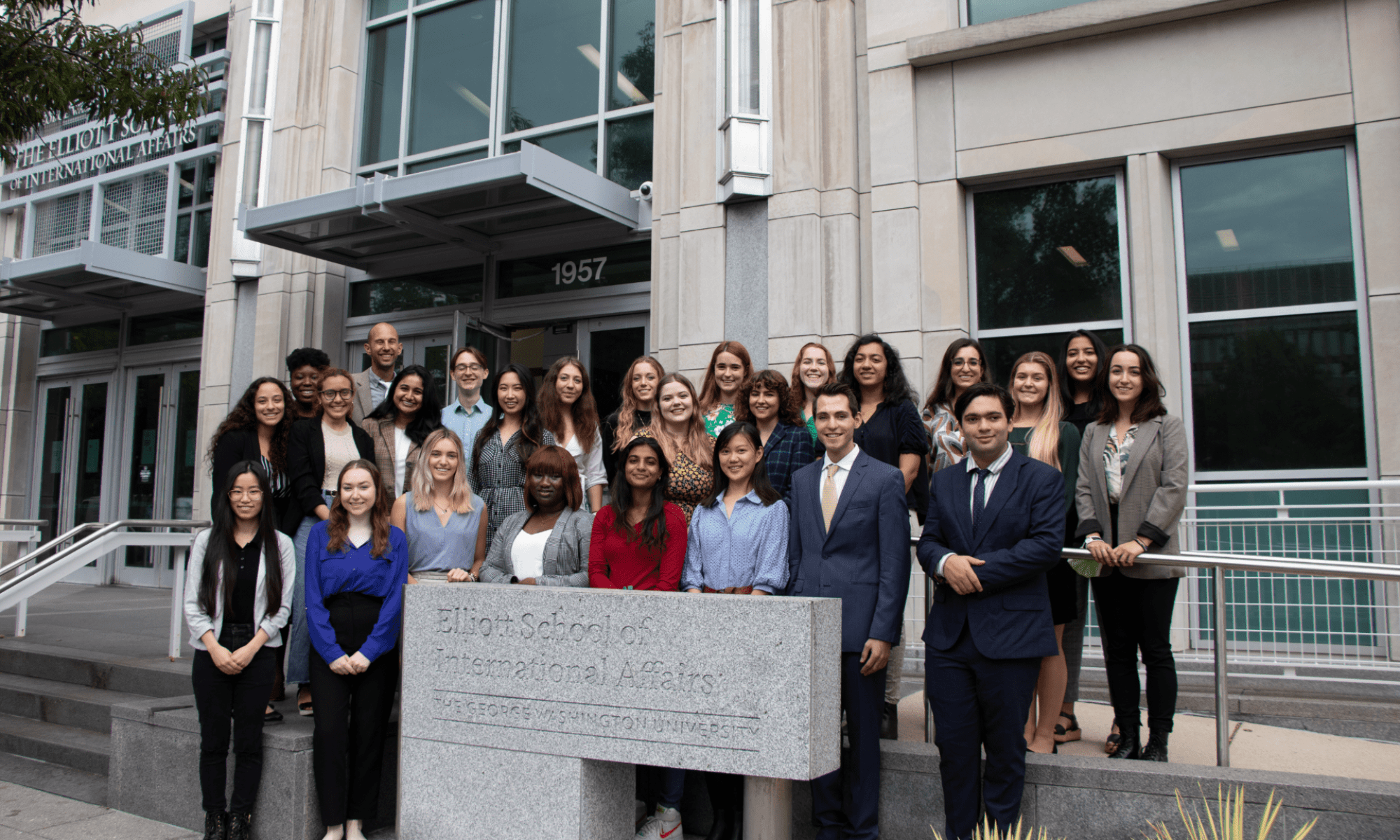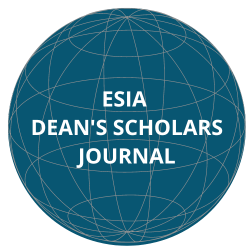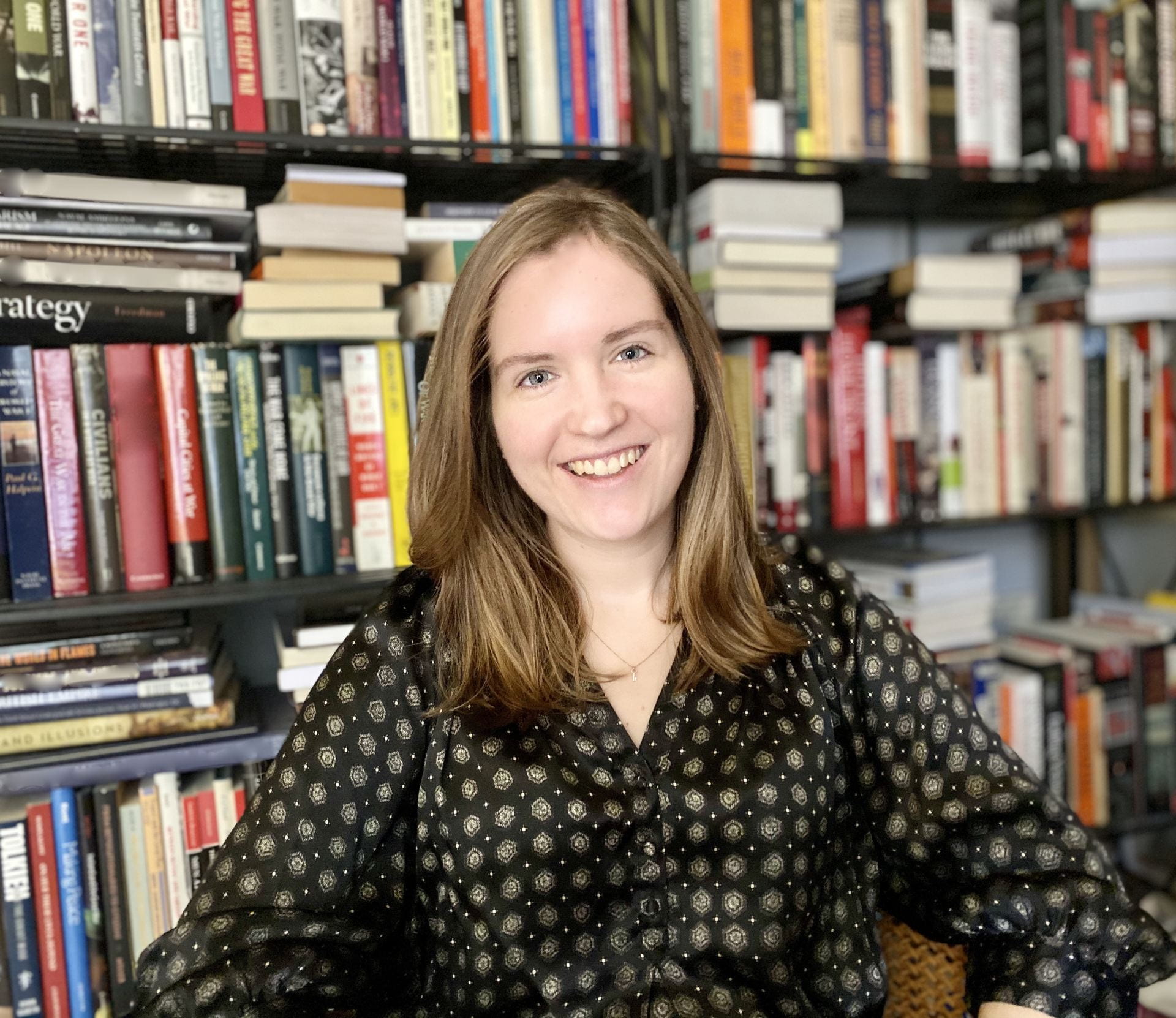By Samantha Lewis, Edited by Anneliese Raynolds
“A good idea could only go as far on its own; the key to achieving a goal was to understand the process.”
The above quote was something Michelle Shevin-Coetzee heard often as an undergraduate intern at the Office of the Under Secretary for Policy at the Pentagon.
That experience inspired Michelle to look into the Pentagon’s Planning, Programming, Budgeting, and Execution (PPBE) process, and how the Department of Defense budgets. Committed to learning the process inside and out, Michelle took advantage of the Elliott School Undergraduate Scholar Program, the precursor to the Dean’s Scholars Program. The Undergraduate Scholar Program gave her the opportunity to dive into her research over a longer timeline. She was able to conduct various interviews with a wide range of experts, as well as eventually publish her findings as a think tank report and an op-ed.
Michelle’s time in the program also enabled her to develop her research skills. The skill of drafting a long report with a coherent argument, paired with the ability to publish an op-ed prepared her for her future in the research community. Michelle acknowledges the importance of compiling a list of extensive sources, but she also recognizes how crucial it is to be able to sort through that information quickly and determine what matters most from it. Michelle also notes that this key skill is one that she continues to draw upon in her current work on the hill.
“I also found it very useful to publish an op-ed after the program because it allowed me to identify my bottom line upfront.”
After graduating from GWU in 2015, Michelle went on to get a Master of Arts in Security Studies from Georgetown University. She credits her time in the program for sparking her interest in the process of how actors and institutions with different perspectives present, debate, and ultimately come together to achieve an outcome. Michelle carried this interest into her graduate studies, where she wrote her graduate thesis on lessons that NATO can learn for its strategic review from the European Union’s equivalent process.
“I find understanding and trying to overcome bureaucracy fascinating, and maybe that’s why I’m committed to working in government!”
The Undergraduate Scholar Program taught Michelle how to make the most of an experience. Each week, she made sure to set aside time to go off campus to interview experts, speaking with them at their offices and attending panel discussions. This, Michelle stated, made the research more tangible, especially when it came to researching a topic that can quickly turn into a numbers game.
“Go all in and make the most of the experience!”
When asked what advice she had for college students pursuing research opportunities, she stated:
“Be open to everything! My first job out of college completely changed my career trajectory. Although I joined a broad strategy team at a think tank, the work largely focused on European affairs because of my boss’ background. My regional focus at GW was East Asia – I hadn’t even taken a single class on Europe during college! But I jumped into the Europe work and loved it. I ended up continuing my focus on European defense policy and it led me to pursue a Fulbright Schuman fellowship based in the UK and Germany. I think it’s important to have an idea of what you want to do and a goal to work toward, but it’s likewise important to recognize that some things will just fall into place.”
Michelle now works as a Military Legislative Assitant in the U.S. House of Representatives.


